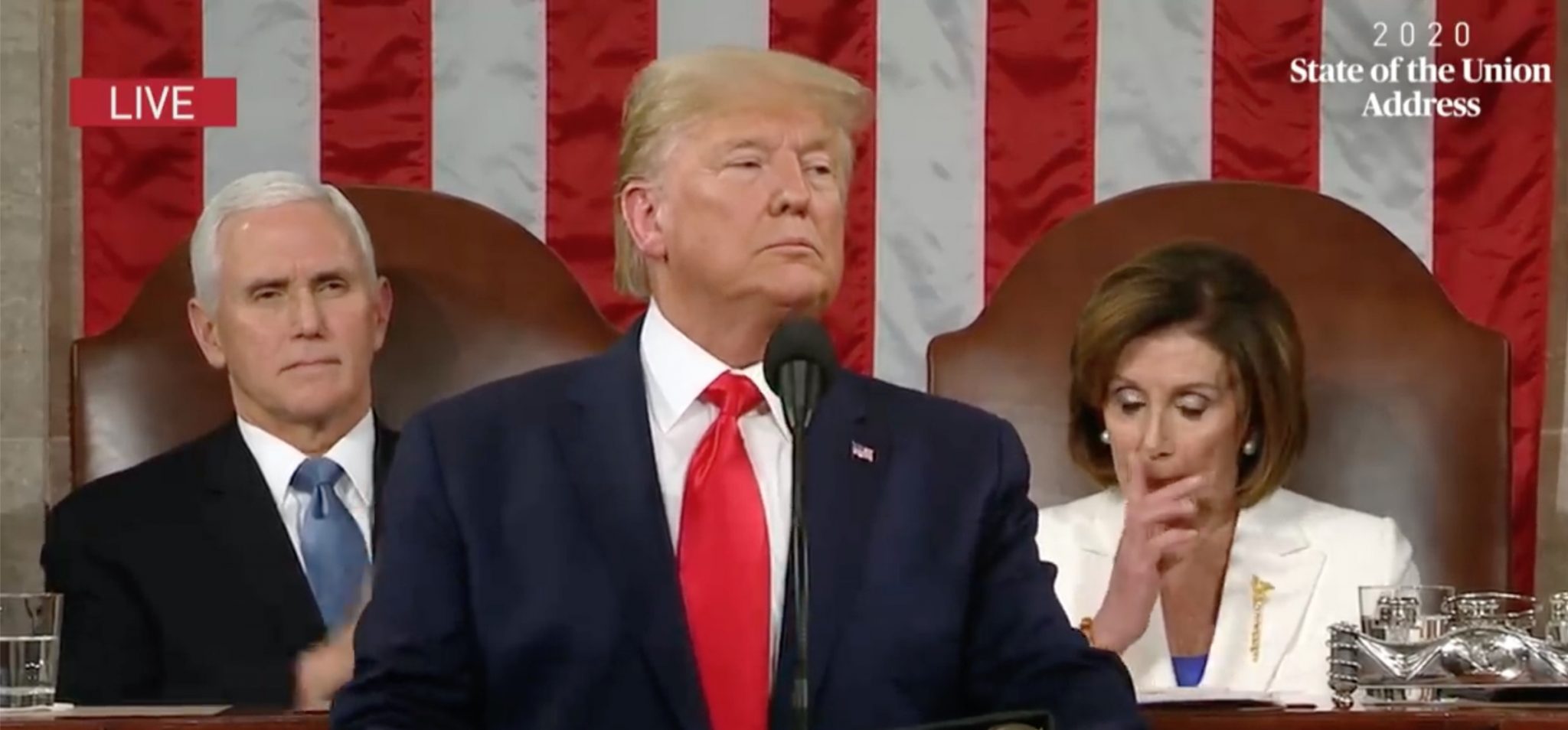President Trump spoke nearly 6,000 words in his State of the Union address on Tuesday. These included “Space Force,” “Advancing Support for Working Families Act,” and “Artemis program.” The terms “debt” and “deficit” never made it past the blue pen.
The numbers for both exponentially eclipse the number of words the president spoke. Despite the stock market spike; record-low joblessness for veterans, the disabled, African Americans, and other groups; and exodus from the welfare rolls that the president rightly cited in his speech, the federal government bizarrely puts its books in the red by more than $1 trillion, as though operating in a bust rather than a boom. Rather than pay down the $19 trillion bill he inherited, Trump, with the help of both parties in Congress, incontinently expanded that debt to over $23 trillion.
Perhaps the president will offer more on this subject when he submits his budget to Congress on Monday. The group OpenTheBooks.com took a sneak peek at the budget. “We are excited to announce that for the first time in U.S. history,” the group says, “the President has included a chapter on curbing waste, fraud, corruption, and taxpayer abuse.”
Alas, every president talks of eliminating waste, fraud, and abuse. Almost all of them use the bromidic phrase as a cover for their inability to tackle debt, deficits, and spending.
The gargantuan debt and deficit require more than stale code words, which by this point translate to pretending to care. Perhaps the budget, unseen by your correspondents, contains some serious reforms that save money. But waste, fraud, corruption, and abuse do not amount to pennies on the dollar of the deficit.
Two words with more meaning than those four? Taxes and spending.
Federal revenues essentially flatlined for five years beginning in 2015. The debt and deficit cannot come down without simplifying taxes. This means applying U.S. rates to income sheltered abroad with credit for foreign taxes paid (bolstering the repatriation program already begun by this administration), an encouragement of limited-liability companies (LLCs) to file as C Corps with the elimination of the double tax applied to capital gains, and a restructuring of the tax code to abolish the byzantine maze of deductions in favor of a more transparent system that does not allow Amazon, General Motors, Chevron, and many of the largest corporations to bizarrely avoid paying income taxes. We do not need tax hikes. We need an honest rate.
Choosing a spending area to cut reminds one of the proverbial mosquito at the nudist camp. Where to even begin? One grasps what needs doing but delays action for the overabundance of choices. The part that nibbled on 5 percent of the budget a half century ago but now devours almost a third of it seems a sensible start.
The president announcing a price transparency initiative and that “for the first time in 51 years the cost of prescription drugs actually went down” as a result of the proliferation of generic drugs and the FDA fast-tracking medicines arrived as welcome news. It also addresses health-care cuts, if one can call them that, from the right perspective. Given the tethering of federal government’s spending, from Medicare to Medicaid to Obamacare and beyond, to the rise of health-care costs, reining in what we all spend necessarily limits what the government spends. The fact that Americans spend more than $10,000 per person, greater than 17 percent of gross domestic product (GDP), on health care — when we spent 7 percent of GDP a half century ago — shows something beyond waste, fraud, and abuse at work driving up costs.
Simplifying the tax code to generate greater revenues and making health care affordable again look like two issues upon which Democrats and Republicans, divided on so much, could come together for the good of America, whose trillion-dollar deficits and debt exceeding GDP jeopardizes the very prosperity the president touted in his address.
Donald Trump may not have offered his hand to Nancy Pelosi during the State of the Union. He did offer an olive branch. But with one survey of Democrats showing a preference (by a wide margin) for November 3 ending with a “giant meteor strikes the earth, extinguishing all human life” over the president’s reelection, the chances of reform following rapprochement seems about as likely as that meteor Earth into ground zero.
The chances do seem fairly strong that November 4 follows November 3. With election season over, then perhaps those in the Capitol (and the White House) may heed the president’s message on Tuesday to “never forget that the only victories that matter in Washington are victories that deliver for the American people.”
Hunt Lawrence is a New York-based investor. Daniel Flynn is the author of six books.
























